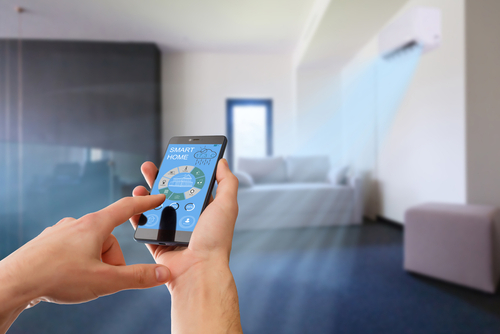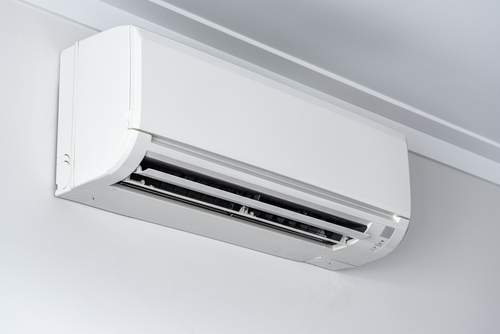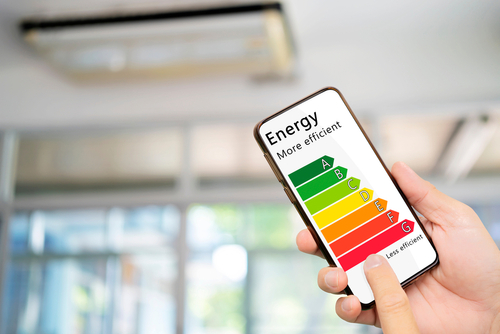
How to Reduce Aircon Energy Consumption
How to Reduce Aircon Energy Consumption? In the tropical climate of Singapore, air conditioning (aircon) is not a luxury but a necessity.
Thus, it’s critical to find strategies to cut down on aircon energy consumption, to save costs and contribute to sustainability efforts.
This article provides practical advice and tactics to help you achieve this goal.
Understanding Your Aircon Energy Consumption
The journey towards reducing aircon energy consumption begins with understanding how your air conditioning system works.
A standard aircon unit uses refrigeration technology to extract heat from the air. This process demands energy, which is quantified in kilowatt-hours (kWh).
The higher your aircon’s kWh usage, the higher your power bill will be. Several elements can influence this consumption, including your room size, the efficiency of your unit, and the frequency and duration of your aircon usage.
Practical Ways to Reduce Aircon Energy Consumption
Setting the Right Temperature
The temperature set on your aircon has a significant influence on its energy consumption.
The National Environment Agency of Singapore recommends an optimal setting of 24-26 degrees Celsius.
Reducing the temperature to 22 degrees can hike energy use by up to 18%.
Regular Servicing
Regular aircon maintenance is key to keeping it efficient. Over time, aircon filters may clog up with dust and other particles, impeding airflow.
This blockage forces the system to use more energy to function properly. Regular servicing can keep your aircon running smoothly and, thus, lower energy usage.
Optimal Size and Installation
The capacity of your aircon unit should correspond to the space it’s cooling. An under-sized unit will struggle to cool a large room, leading to energy waste.
Conversely, an oversized unit for a small space may generate excess humidity and also waste energy.
An appropriately sized unit and correct installation are crucial to reducing energy consumption.
Energy-Efficient Aircon Models

Understanding Energy Efficiency Ratings
Higher Energy Efficiency Ratio (EER) or Seasonal Energy Efficiency Ratio (SEER) ratings indicate that the unit is more energy-efficient.
In Singapore, aircon units also carry a Tick rating system, with more ticks signifying higher energy efficiency.
Inverter Technology
Many modern aircon models incorporate inverter technology.
Unlike traditional aircon that cycles on and off, inverter aircon can adjust its speed to maintain a stable temperature.
This feature reduces energy consumption and saves money over time.
Smart Technology
Smart Thermostats
They thermostats provide another method to reduce aircon energy consumption.
These devices enable you to schedule your aircon to run at specific times, reducing the need for continuous cooling. You can even manage them remotely via your smartphone.
Smart Home Integration
Pairing your aircon with other smart home devices can enhance energy efficiency.
For instance, integrating it with smart blinds that lower during the hottest times of the day can lessen the load on your aircon.
Additional Strategies to Minimize Aircon Energy Consumption
Utilizing Natural Ventilation
Despite Singapore’s typically warm and humid climate, there are periods when the breeze can offer relief.
On such days, you can switch off the aircon and open windows and doors to promote natural ventilation, reducing energy consumption and improving air quality by circulating fresh air in your home.
Insulating Your Home
Insulation plays a critical role in maintaining your home at the desired temperature.
Adequate insulation can prevent heat from entering your home during the day and retain cool air at night.
Consider insulating your walls, roofs, and windows to alleviate the strain on your aircon.
Investing in Energy-Efficient Appliances
Energy-efficient appliances complement energy-efficient aircon units.
Devices that generate less heat can decrease the overall temperature in your home, reducing the need for constant cooling.
Consider investing in appliances with energy-saving features to supplement your energy conservation efforts.
Passive Cooling Design

Understanding Passive Cooling
Passive cooling is a natural method that reduces heat gain and encourages cool air circulation within a building.
It employs shading, natural ventilation, and building orientation to maintain a comfortable indoor temperature, reducing the need for aircon systems.
Applying Passive Cooling Design in Singapore
Incorporating passive cooling techniques in Singapore’s hot and humid climate can significantly decrease aircon energy consumption.
For example, you can use window coverings to shield your interiors from direct sunlight.
Frequently Asked Questions
How does setting my aircon to the right temperature save energy?
Setting your aircon to the optimal temperature (24-26 degrees Celsius) prevents overworking the unit and conserves energy. If the temperature is too low, the aircon works harder to cool the room, resulting in higher energy consumption.
How often should I service my aircon to maintain its efficiency?
Regular servicing keeps your aircon unit running efficiently. You should service your aircon at least once every three to four months. If the unit is heavily used, it might require more frequent servicing.
What is the benefit of an aircon unit with a high EER or SEER rating?
A higher EER or SEER rating means the aircon unit is more energy-efficient. The unit can cool a room using less energy, leading to savings on your energy bill over time.
How does smart technology help in reducing aircon energy consumption?
Smart technology, like smart thermostats and home integration systems, allows for more accurate control over your aircon usage.
You can schedule your aircon to operate at specific times, reducing the need for constant cooling.
Integrating with other smart home devices can also optimize energy usage.
What is passive cooling, and how can it reduce aircon energy consumption?
Passive cooling is a design approach that uses natural ventilation, shading, and building orientation to reduce heat gain and maintain a comfortable indoor temperature.
By applying passive cooling techniques, you can lower your reliance on aircon systems, saving energy.
How can I participate in the Green Mark Scheme?
The Green Mark Scheme is a rating system that evaluates buildings for their environmental impact and sustainability.
You can apply for the Green Mark certification if you’re a building owner.
As a resident or tenant, you can search for Green Mark-certified buildings for a new home or office space.
How to Reduce Aircon Energy Consumption? – Conclusion

Reducing aircon energy consumption necessitates a multi-faceted approach.
You contribute significantly towards this goal by understanding your energy use, servicing your aircon regularly, investing in energy-efficient models and appliances, optimizing your home design for passive cooling, and participating in local sustainability initiatives.
This leads to cooler homes and lower energy bills and contributes to a more sustainable city.
Reducing aircon energy consumption in Singapore is achievable by taking practical actions, using the right equipment, and harnessing smart technology.
These strategies will save you money and contribute to a sustainable future.
It all starts with understanding your consumption, making conscious adjustments, and investing wisely in energy-efficient appliances.
Are you seeking professional and reliable aircon services in Singapore? Contact us today!



